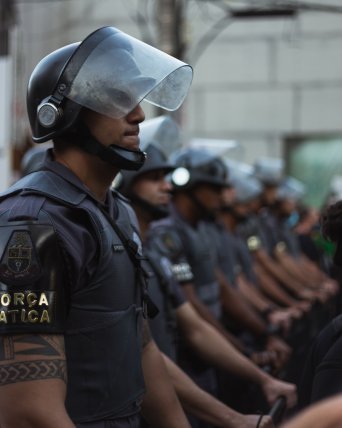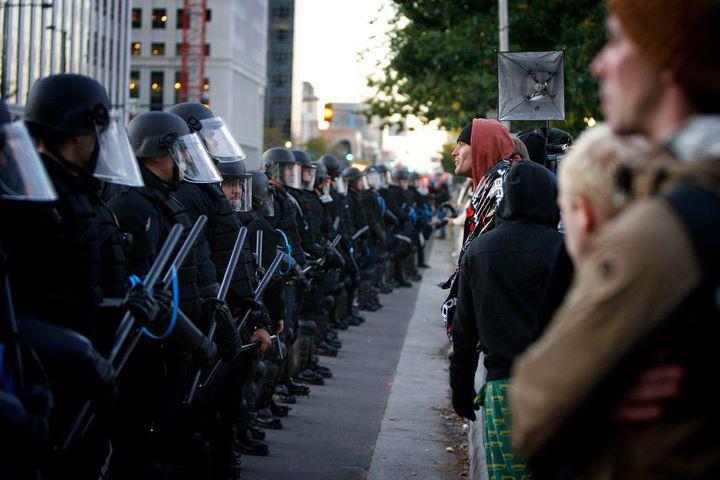- About
- Topics
- Picks
- Audio
- Story
- In-Depth
- Opinion
- News
- Donate
- Signup for our newsletterOur Editors' Best Picks.Send
Read, Debate: Engage.
| topic: | Political violence |
|---|---|
| located: | Brazil, USA |
| editor: | Ellen Nemitz |
In 2021, the world recorded at least 579 executions in countries that include the death penalty in their justice systems, according to Amnesty International. Brazil is not one of these nations - not officially, at least. Between 2018 and 2020, nearly 19,000 people died due to police intervention in the country, according to the Brazilian Public Security Annual Report. This is an average of more than 17 deaths every day.
On 25 May, one of these daily cases caused outrage in Brazil: Genivaldo de Jesus Santos, a 38 year-old man diagnosed with schizophrenia, was approached by the Federal Highway Police (PRF, in Portuguese) in Sergipe, a northeastern state, for reportedly not using a helmet while driving his motorcycle. According to witnesses, he did not understand the police's instructions due to his mental conditions and died of asphyxiation after being forcibly put in the back of a car filled with smoke from tear gas, in what is being described as a torture session.
The police officers were suspended for investigations and the PRF said that it will "seek the improvement of the approachment standards;” however, an investigation carried out by a local TV network showed that there may be at least 18 similar cases of gas used on people inside police cars over the past 12 years.
The national commotion about Genivaldo's death was not as expected compared to other similar cases. On the same day two years ago, for example, George Floyd was murdered in the United States, sparking huge protests under the Black Lives Matter slogan throughout the world - including in Brazil. Genivaldo's cruel death gave rise to some outraged tweets from public figures and anonymous users, as well as some media headlines - including international ones - comparing the methods used by the police officers to the Nazis’ gas chambers in the Holocaust. Although much smaller than those raised by Floyd’s murder, a few protests took to the streets.
In the US, despite some delay, Floyd’s brutal murder led to a response from the government to reform the policeforce. Will Genivaldo at least have his memory honoured with justice?
The United Nations demanded a "prompt and thorough investigation" about Genivaldo's murder. "Disproportionate police violence will not stop until authorities take definitive action to combat it," said Jan Jarab, regional chief for UN Human Rights in Latin America. Jarab also mentioned that the police must carry out "structural changes" to include "procedures based on human rights, as well as to examine whether laws, policies and procedures provide clear guidelines and restrict the use of force by law enforcement officers, in accordance with international standards." Moreover, he says, officers should receive proper training to deal with people with mental afflictions.
Genivaldo died for driving without a helmet. Who will be the next victim? The police are not the problem; on the contrary, it is just a symptom of a society that closes its eyes to death since it is just part of everyday life. Police violence, especially towards black and poor people, has become natural. When will Brazilians say “enough?”
Photo by Rogério S

